But that has become a regular feature of our football in the past four years, it has drifted far away from the football field, and is now found in the boardroom
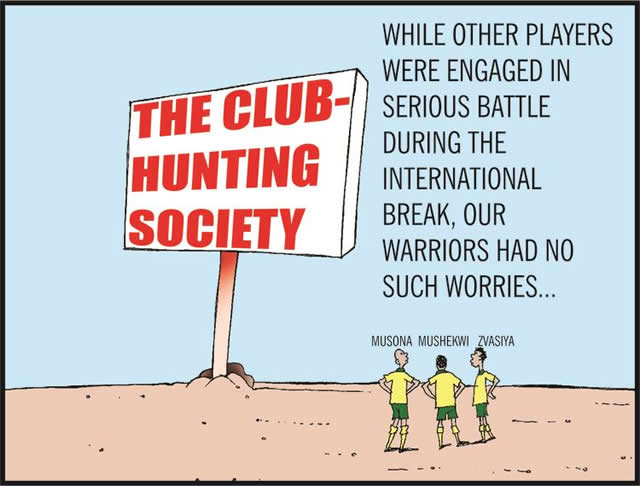
 IN a normal football environment, the Warriors would have been in Zambia this weekend for a titanic 2015 Nations Cup showdown against eternal rivals Chipolopolo in the latest chapter of the Battle of the Zambezi.
IN a normal football environment, the Warriors would have been in Zambia this weekend for a titanic 2015 Nations Cup showdown against eternal rivals Chipolopolo in the latest chapter of the Battle of the Zambezi.
But these are abnormal times in our troubled national game and the Warriors will join their long-suffering fans, as armchair viewers of the 2015 Nations Cup group stage qualifiers, with Mozambique, instead, taking on Zambia this weekend.
The response from our football leaders will be to wave their usual Asiagate card, blaming this Beast for our stunning decline as a football power, blaming everyone they associate with this Beast for how the Warriors have lost their powers to destroy prey and how they have turned from being feared hunters into the hunted.
But if this Beast has tamed us, why is it that we were good enough to play in the group stages of the Nations Cup qualifiers in 2007 and in September that year, long after our players had gone to Malaysia, played in the contentious Mederka Cup and came back, the Warriors beat Malawi 3-1 at Barbourfields with Kingston Nkhatha, Richard Mteki and Method Mwanjali on target?
If this stinking Beast was at its most active between 2007 and 2009, as our football leaders love to tell us, and it crippled us as a force, why is it that the Warriors were good enough to play in the group stage qualifiers of the 2010 Nations Cup and they even started their journey with a heroic draw in the hostile and unforgiving environment of Conakry, Guinea?
They even won their second game, in that group, against Namibia, with Gilbert Mushangazhike scoring twice at Rufaro, to go top and take early control.
If this nauseating Beast was at its most active between 2007 and 2009, as our football leaders have been preaching for ages in the last four years, why is it that the Warriors were even strong enough to win the Cosafa Senior Challenge Cup title in 2009 with a 3-1 win in the final against a Zambian team that fielded a number of players who would be African champions three years later?
The striking irony of all this is that the next time the Warriors plunged into the Cosafa Cup — four years after their win in 2009, after our football leaders had “cleansed” our national game and removed the “rotten” apples — they came short in their defence of the title and surrendered their regional crown to their bitter rivals Zambia.
And in 2010, in the qualifiers for the 2012 Nations Cup, we were in the same Pot Three of the draw, for the group stages of the qualifiers, with Sudan, who played South Africa yesterday, the DRC, who host Cameroon today, Ethiopia, who take on Algeria today, and Botswana, who have a date away in Tunisia today.
That was our value as a national team, on February 21, 2010, when the draw for the 2012 Nations Cup qualifiers was done, a month before our current football leaders swept into power, and as far as Caf were concerned, we were of similar strength with the likes of Sudan, the DRC and Ethiopia and that explains why we were all pooled in Pot C of the draw.
In the 2013 Nations Cup qualifiers, we didn’t start from the preliminary round, we were considered too strong for that, it was an area for the likes of Lesotho, who played in the preliminaries and lost to Sao Tome and Principe, while we got our bye into the first round, and for good measure, we only lost out for a place in South Africa to Angola on away goals rule.
So, why is it that in the last four years, under the watch of our current football leaders, we have plunged from a national team that didn’t even need to play in preliminaries, whose place in the group stages of the Nations Cup qualifiers was guaranteed, which would only lose a place, in the Nations Cup finals, on the final hurdle on away goals rule to Angola, to one that has to play the preliminaries?
There are some serious questions that our football leaders should ask themselves, as the 2015 Nations Cup group stage qualifiers got underway last night, rather than find eternal refugee in a lie.
How have Lesotho, who had their internal probe into match-fixing after their national team also played in the same Merdeka Cup in 2007 in Malaysia with the Warriors, managed to transform themselves from being a team that was losing to Sao Tome and Principe, in the preliminary round of the 2013 Nations Cup qualifiers, into one that is now playing in the group stages of the 2015 Nations Cup qualifiers?
How have Botswana, who also fired their Football Association chief executive Mooketsi Tosh Kgotlele in 2009 after questions started being asked about their national team’s controversial trips to Asia and the then national team coach claimed he was thrown into a match-fixing den, managed to transform themselves into a better side, after this dark episode, qualifying for their first Nations Cup in 2012 and playing in the group stages of the qualifiers for the 2015 tournament, starting in Tunisia today?
South Africa didn’t burn down their house after their 2010 World Cup friendlies were manipulated by the same match-fixing syndicates and we all saw their joy last night when they scored against Sudan.
The BBC says the Calciopoli, the Italian match-fixing scandal of 2006, which resulted in Juventus being demoted to Division Two and stripped of their last two Serie A titles, Lazio and Fiorentina also being demoted and AC Milan handed a 15-points penalty, was the worst football match manipulation scandal of all-time.
Given that it featured Juventus, AC Milan and Lazio, where Italy’s top national team players played, it had the potential of destroying their national game but the Italians found a way to deal with the culprits, without making a show for the watching world, and in the same year that the scandal broke and sanctions were handed out, Italy won the World Cup in Germany.
The triumphant ’keeper of that Italian national team was Gianluigi Buffon, the Juventus icon, and if you follow the Calciopoli closely you will notice that prosecutors in Parma haven’t closed his file and are still investigating him for his possible involvement in corruption, but he isn’t guilty until proven otherwise.
Last month, Italy named Antonio Conte, who won three straight league titles with Juventus, as their new national team coach, on a two-year contract until July 2016, and this is the same man who, just two years ago, spent the first 10 months serving a ban for match-fixing while he was coach of Sienna in 2010.
My point here is that even the countries that have had the worst experiences with match-fixing, and there is no better example than Italy, have found a way to deal with this cancer without bringing their football to a halt, have found a way to address this issue without destroying their game and because they have been decisive, and professional, in dealing with this scrounge, they have given their game a chance to keep breathing.
Our case, sadly, has no closure, four years down the line, because it has become a bargaining tool for some of our administrators, who say we can’t close this case because if we do then we have nothing to show the country of what we have been doing since we came into power, the Warriors and the Nations Cup and World Cup have become secondary, an inconvenient sideshow, and that they are not playing this weekend doesn’t mean a thing to them.
The abnormality of our situation has become so normal, so acceptable, so defendable by their army of spin doctors, and even when we now play in the Nations Cup preliminaries, where four years ago we had a guaranteed slot in the group stages of the same qualifiers, no one should ask questions because doing so will be preaching the gospel of the anti-football people and everyone should just accept that its normal that we aren’t playing this weekend.
That it’s normal that Lesotho are playing, this weekend, and we aren’t doing so, that it’s acceptable that Botswana are playing this weekend, and we are just watching from the sidelines, that it’s normal that Zambia are playing this weekend and we aren’t in action, that it’s normal that Malawi are playing this weekend and we are just armchair viewers and that it’s normal that Angola are playing this weekend and we are not.
In case you ask questions, you are labelled anti-football and you might join Josh Khumalo in being outlawed from the game, you might join Wellington Mpandare, the Gunners manager who could be soon outlawed from the game because he dared criticise the Zifa leadership in parliament one day, letters have been flying in the corridors for that expulsion to be effected, and you might join Tinashe Mapuranga, who was even barred from entering the Zifa offices this week.
But someone has to say it, someone has to ask questions, someone has to be sacrificed, to pay the price.
OUR FOOTBALL, UNLIKE OUR CRICKET, IS ALL PLAYED IN THE BOARDROOM
The possibility that we could have been playing Zambia this weekend, in a Nations Cup qualifier, brought back a flood of memories for some of us who lived through the euphoria triggered by the good run by the Dream Team when they challenged the world and stood toe-to-toe with the heavyweights of African football.
On April 10, ’93, exactly 21 years ago, the Dream Team plunged into battle against the Zambians, in the Independence Stadium, and after a titanic ’94 Nations Cup showdown, came out unscathed, having forced a goalless draw against a very good Chipolopolo side coached by one of their all-time greats, Godfrey “Ucar” Chitalu.
Sadly, that marked our last confrontation with Ucar, a goal-scoring legend during his time when he led Zambia to the final of the ’74 Nations Cup final in Egypt, where they forced a 2-2 draw against the DRC before losing the replay 0-2, as he would be one of those who perished, two weeks later, in that plane crash off the coast of Gabon.
Just four days after forcing that draw in Lusaka, the Dream Team flew to Europe for a World Cup showdown against Egypt in the French city of Lyon and, once again, Reinhard Fabisch and his men stood firm, in the face of a severe assault from their opponents, and kept another clean sheet in yet another big result on foreign soil.
Bruce Grobbelaar was unyielding in goal, Mercedes Sibanda, Paul Gundani, Ephraim Chawanda, Francis Shonhai and Norman Mapeza an impregnable rock at the back, protected by a tiger called Benjamin Nkonjera whose big heart belied his small frame, while Rahman Gumbo, Henry McKop, Peter Ndlovu and Agent Sawu provided the threat in attack in a team where they also put long shifts in defence.
In Lyon Madinda Ndlovu came in the very last minute for Ajira while Max Lunga was introduced, 14 minutes from time, for Nkonjera who had covered more distance, during that time, than any player on the pitch.
That Dream Team didn’t lose a game in their entire campaign in the ’94 Nations Cup qualifiers, despite visits to South Africa and Zambia, and only that unforgettable freak goal by Kalusha Bwalya, with just 10 minutes left in the final qualifier at the National Sports Stadium, denied the Warriors a place at the ’94 Nations Cup finals their industry deserved.
Sadly, all we now have are just memories, and while the Zambians are in action again this weekend, in a Nations Cup qualifier, we can only watch from a distance and wonder what might have been had things turned out differently and it was us, and not Mozambique, who were their opponents.
But that has become a regular feature of our football in the past four years, it has drifted far away from the football field where its headlines should be coming from, where its heroes should be made and where its villains should emerge, and has become a sport for the boardroom where the newsmakers, the stars of the show, are now the administrators.
Today, at Harare Sports Club, our main cricket ground will provide the stage for a heavyweight duel between two of the top three One-Day International countries in the world, Australia and South Africa, for the right to take away the Tri-Series title home just a few months before the Cricket World Cup starts Down Under.
Our national cricketers battled long and hard, against classy opposition to try and make the final, but they say, in the long run, quality always shines through, and although Elton Chigumbura and his men ultimately failed, they fought the big battles on the field, standing toe-to-toe with the best in the world, and even beating Australia, then ranked number one, in one of the games to write headlines around the globe.
But even though, ultimately, they were not good enough to make the final, the fact remains that they took on the world’s best teams, on the pitch where their battles should always be, and they gave the fans some new heroes — John Nyumbu with his infectious smile that will charm even the Devil, Sean Williams, the unassuming all-rounder with the heart of a lion and Prosper Utseya reminded us that he still has that X-Factor with his hattrick against the Aussies.
The defining image was provided by their coach, Steve Mangongo and his mother, as they celebrated that win over Australia, the old woman choking with emotion that her son had done it, for his country, against the country ranked the best in the world at that time, trying to say something but finding out that there were no words to say what she wanted, and the tears came down, lots of them, as mother and son reunited in soul and spirit, to toast a golden moment for them, for us, for everyone who calls himself a Zimbabwean.
Such emotion, such happiness, such boundless joy can never be provoked by events from the boardroom, even if you announce that you have “banned” over 100 people from the game, even if you announce that you have pardoned them all, even if you announce that you have disbanded a national team for the umpteenth time, even if you announce that you have parted company with your sixth national team coach in four years, even if you announce that you have poured US$1 million into the game, even if you bring Sepp Blatter here, even if you buy a new office for the association.
It can only be generated by what happens on the field, like Prosper Utseya showing us that we can prosper as a country by hitting a huge six, off the last ball of the 48th over to secure victory over the world number one team, like Knowledge Musona keeping his cool as 40 000 hearts pounded at Rufaro, to convert a last-gasp penalty for the win against Mali, like Norman Mapeza going around the old stadium on a victory lap, after that game as the crowd embraced him as their coaching Messiah.
Like Charles Mhlauri taking us to the Nations Cup in 2006, like Sunday Chidzambwa showing us that a homegrown coach can succeed where all our foreign coaches had failed by winning us our first ticket to the Nations Cup finals in 2003, like Peter Ndlovu, the King himself, scoring our first goal at this level against the mighty Pharaohs, like the King slaloming past the entire Bafana Bafana defence, if you look closely you will see Steve Khompela being made a fool of himself by the Flying Elephant, like Agent Sawu scoring that last-gasp winner against Cameroon and 60 000 people inside the giant stadium bursting into delirium.
Like taking on the Zambians in the Independence Stadium, as was the case in April ’93, and coming out with a draw, like thousands of fans converging at Raylton, the drinking hole where they knew they would find their coach Mhofu, after confirmation came through that we had qualified for the 2004 Nations Cup, and bursting into spontaneous celebrations, like thousands, if not millions, of Zimbabweans, jumping off the kombis, after work, and rushing home, in a human mass, to ensure that they watch every minute of their Warriors’ historic first game at the Nations Cup.
Last night we watched Bafana Bafana kick-start the group stages of the 2015 Nations Cup group stage qualifiers in Sudan live on television, the first of a number of matches that we will watch this weekend, on those fields that’s where memories are made, that’s where heroes are made, not in the boardrooms, as has become the story of our football.
THANK YOU DUDUZA, YOU ARE A STAR BOY
Edward Sadomba grew up in a poor neighbourhood in Mbare but, using his football skills, he has managed to change his life, and that of his family, but he hasn’t just settled on being a big-name rich football star and turned himself into a philanthropist who has done more, for the community, than any local footballer that I can recall.
He is setting a good example for all the other footballers, spending a big chunk of his money helping patients at Chitungwiza Hospital or helping the prisoners get a chance to showcase their football talents at a tournament that he sponsors.
When you consider that two years ago he was fighting for his stay in the game, to cleanse his reputation after he was also caught up in this endless match-fixing controversy before being cleared, not before he had spent a considerable amount with his lawyers to take care of his case, and you look at all the philanthropic work that he has done for his country, then you understand that there is a thin line that divides heroism and zeroism.
Thanks Duduza for everything, you have done incredibly well my brother and all the blessings that you can get.
To God Be The Glory!
Come on United!!!!!!!!!!!!!!!!!!!!!!!!!!!!!!!!!!!
Glory, Glory Man United!!!!!!!!!!!!!!!!!!!!
Text Feedback — 0772545199
WhatsApp Messenger — 0772545199
Email — [email protected]
Skype — sharuko58
Like my new Facebook page, ROBSON SHARUKO JOURNALIST, follow me on Twitter @Chakariboy, interact with me on Viber and on ZBC’s weekly television football magazine programme, GamePlan on Monday nights, or read my material in The Southern Times.



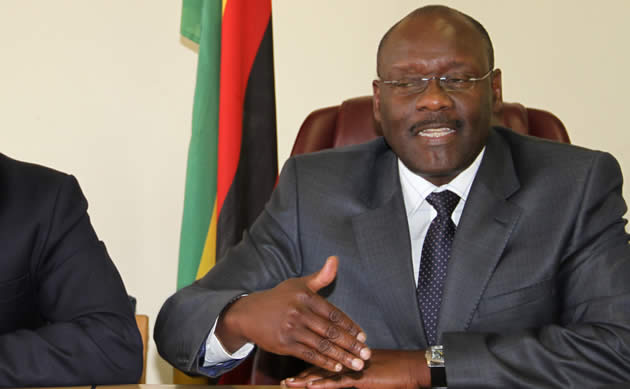
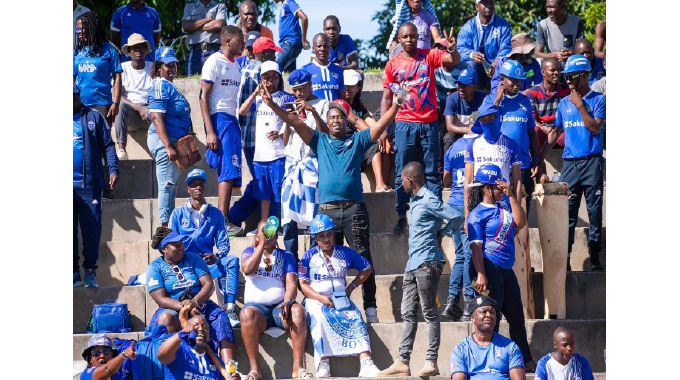
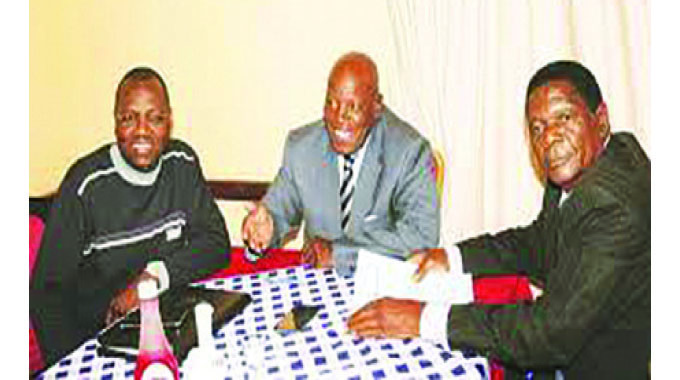
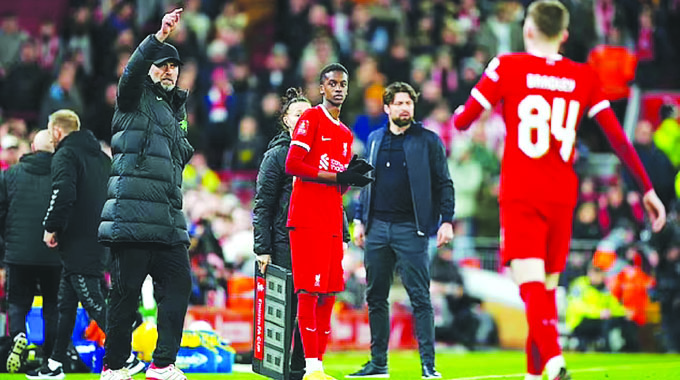

Comments